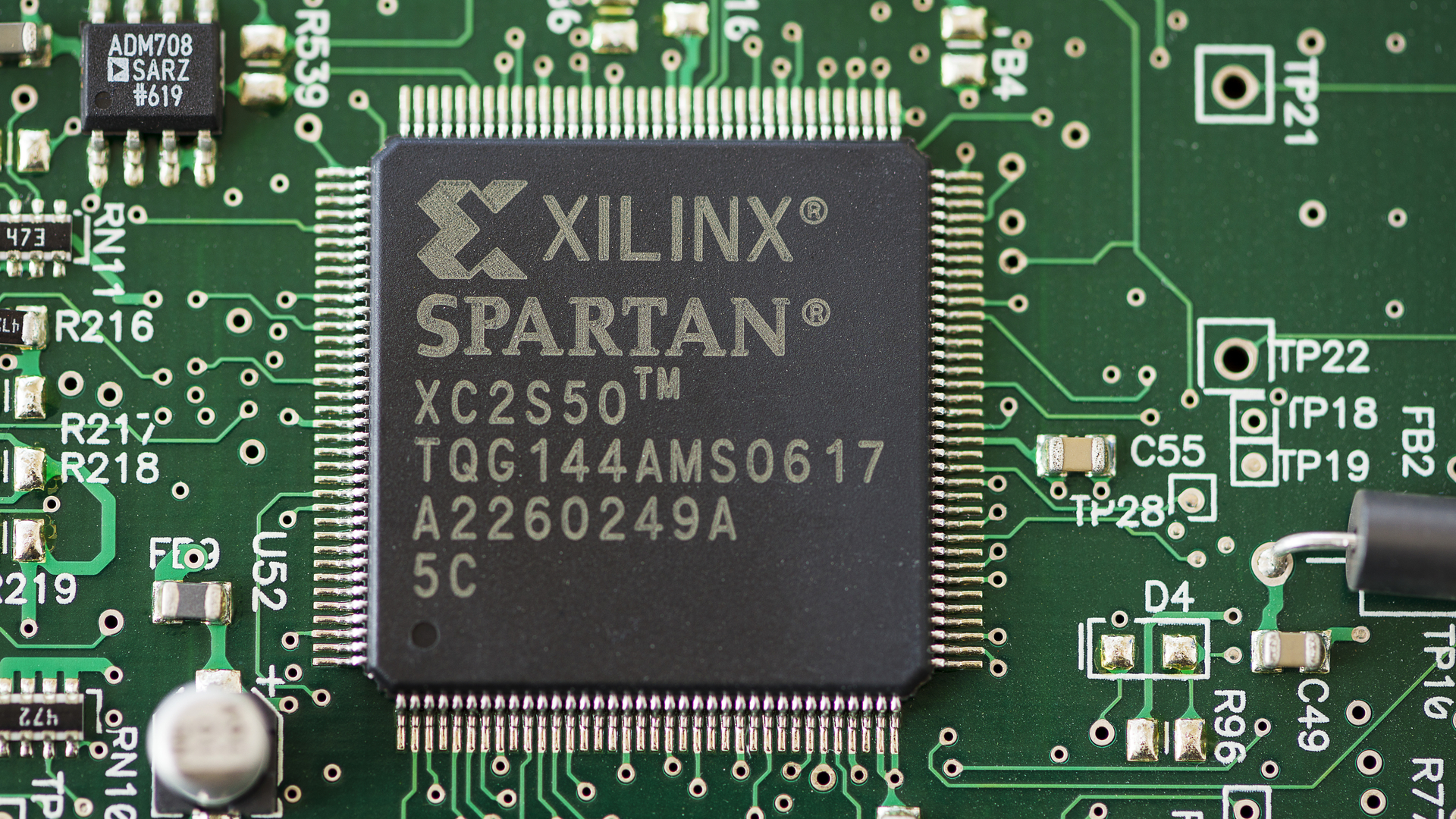US lawmakers call for restrictions on software exports to Chinese chip companies
US government needs broader, systemic restrictions to avoid Chinese military innovation, says letter


Two Republican lawmakers have called for wide-ranging restrictions on the export of semiconductor design software to China, citing national security concerns.
Arkansas Senator Tom Cotton and Texas Representative Michael McCaul wrote to US Commerce Secretary Gina Raimondo with the request yesterday. They requested the Department of Commerce designated the chip design tools, known as electronic design automation (EDA) software, as a foundational technology. Any users under China’s influence should require a full license from the US government to use the software, they said.
The letter was a response to a Washington Post report that said a small Chinese company called Phytium was designing chips for use in calculating heat and drag factors for hypersonic missiles at the China Aerodynamics Research and Development Center (CARDC). The Chinese military could one day use these missiles, the report said.
The Treasury Department added several Chinese organizations, including Phytium, to its Entity List earlier this week, citing their ties to military supercomputing projects. However, the letter chided the Treasury Department for failing to act sooner.
"Despite Phytium’s deep ties to PRC military research and its sales to the CARDC, Phytium was only added to the Entity List after The Washington Post report. We find it deeply troubling that the Department of Commerce allowed such a critical U.S. technology to be harnessed to design weapons targeting American service members in the Indo-Pacific" it said.
The lawmakers warned that other Chinese companies with military links have purchased EDA software from US vendors. They pointed to Huawei subsidiary HiSilicon, which the Commerce Department banned from buying US EDA tools in 2019. The US also imposed sanctions on Chinese semiconductor fabricator Semiconductor Manufacturing International Corp (SMIC) in September 2020 to prevent the company from buying equipment from US companies.
The letter argued that such ad hoc bans do little to stop a wave of Chinese companies with links to the military purchasing EDA. They warned that China's strategy is to erode links between the defense and civilian sectors under an initiative called Military-Civil Fusion, which plans to turn the People's Liberation Army into a world-class military by 2049.
Sign up today and you will receive a free copy of our Future Focus 2025 report - the leading guidance on AI, cybersecurity and other IT challenges as per 700+ senior executives
"Because the MCF is turning the PRC economy into a military-driven ecosystem that is centrally coordinated by the CCP, many American and other non-PRC businesses are knowingly or unknowingly exporting sensitive technologies that are promptly handed over to the CCP military or intelligence services," the letter said.
RELATED RESOURCE

IT Pro 20/20: Meet the companies leaving the office for good
The 15th issue of IT Pro 20/20 looks at the nature of operating a business in 2021
Instead of banning individual companies, the Commerce Department should assume that any Chinese company accepting state investments for semiconductor technologies could be induced to produce sensitive work for the Chinese military.
The lawmakers have requested the Commerce Department introduce a Foreign-Direct Product Rule (FDPR) Footnote No. 1 as part of Phytium's inclusion on the Entity List. This would force any fab in the world using American tools to get a license from the Bureau of Industry and Security (BIS) to fabricate chips from Phytium. The Department should also introduce a broader FDPR 1 covering any Chinese company designing chips with die sizes of 14nm or below, they said.
This move would significantly impact Taiwanese semiconductor manufacturer TMSC, which is one of the most powerful fab companies in the world. TMSC made chips based on Phytium designs, but reportedly stopped supplying the company with new chips following its inclusion on the Entity List this week.
"It is not in the security interests of Taiwan or the United States for companies like Taiwan Semiconductor Manufacturing Corporation to make advanced semiconductor chips for the PRC’s military," the letter concluded.
Danny Bradbury has been a print journalist specialising in technology since 1989 and a freelance writer since 1994. He has written for national publications on both sides of the Atlantic and has won awards for his investigative cybersecurity journalism work and his arts and culture writing.
Danny writes about many different technology issues for audiences ranging from consumers through to software developers and CIOs. He also ghostwrites articles for many C-suite business executives in the technology sector and has worked as a presenter for multiple webinars and podcasts.
-
 Microsoft unveils Maia 200 accelerator, claiming better performance per dollar than Amazon and Google
Microsoft unveils Maia 200 accelerator, claiming better performance per dollar than Amazon and GoogleNews The launch of Microsoft’s second-generation silicon solidifies its mission to scale AI workloads and directly control more of its infrastructure
-
 Infosys expands Swiss footprint with new Zurich office
Infosys expands Swiss footprint with new Zurich officeNews The firm has relocated its Swiss headquarters to support partners delivering AI-led digital transformation
-
 The US government's Intel deal explained
The US government's Intel deal explainedNews The US government has taken a 10% stake in Intel – but what exactly does the deal mean for the ailing chipmaker?
-
 Trade body urges UK government to speed up National Semiconductor Strategy
Trade body urges UK government to speed up National Semiconductor StrategyNews Trade body techUK has urged the UK government to accelerate the implementation of the National Semiconductor Strategy.
-
 Biden pledges to address the growing chip shortage crisis
Biden pledges to address the growing chip shortage crisisNews The administration is working with businesses to identify and mitigate bottlenecks in semiconductor supply
-
 Pentagon updates wired and wireless connectivity with Aruba
Pentagon updates wired and wireless connectivity with ArubaNews Upgraded networks will support the US Department of Defense’s headquarters and tens of thousands of devices
-
 HP airs concerns over Government SMB IT deals
HP airs concerns over Government SMB IT dealsNews Tech giant has reportedly written to the Treasury to outline its concerns about the Government's ongoing SMB supplier push
-
 Government Compliancy in the IT Sector
Government Compliancy in the IT SectorIn-depth Compliance is paramount to government IT installations; Max Cooter explains why.
-
 Taxpayers' Alliance hits out at schools' "wasted" tablet investments
Taxpayers' Alliance hits out at schools' "wasted" tablet investmentsNews Campaign group claims schools are failing to make best use of technology.
-
 BlackBerry 10 cleared for use by US government agencies
BlackBerry 10 cleared for use by US government agenciesNews BlackBerry maker's forthcoming device gets security thumbs up from US government.
